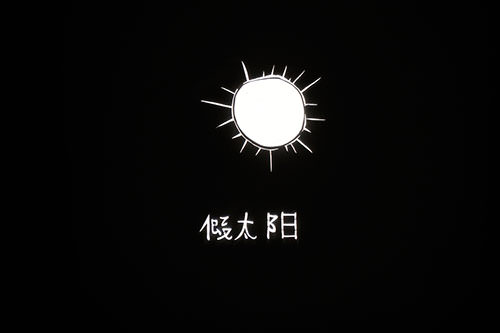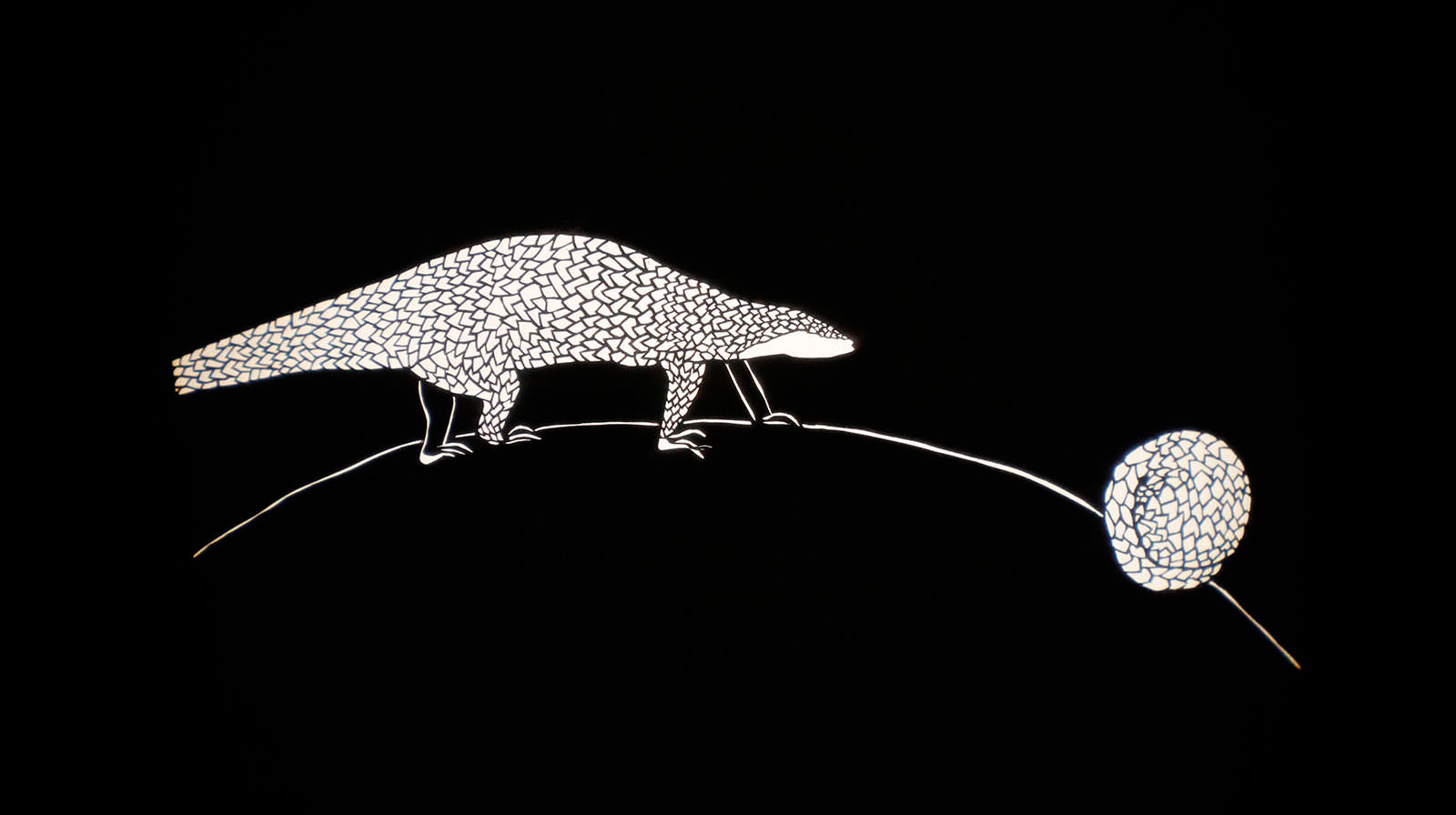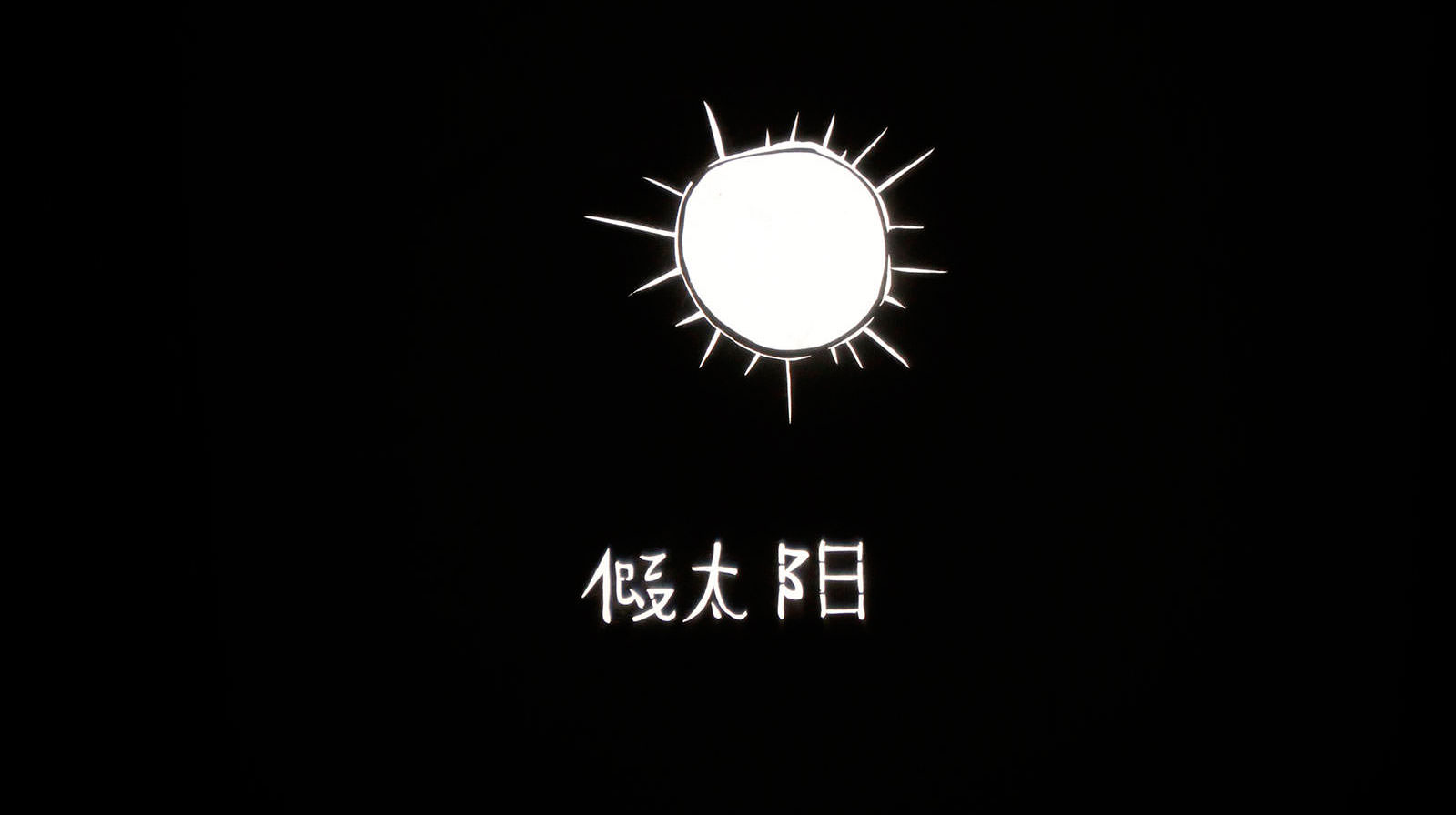DIE WELT REPARIERT
修复世界
"看看上面的天空,它不再是一个天空了。看看地球,它不再是一个地球了。世界上的事情已经发展到如此地步,这难道不应该让我感到不安吗?"
——遮咪麻,出自《遮帕麻和遮咪麻》
在《修复世界》的舞台版本中,我们将念读、音乐、绘画和皮影戏元素结合在一起,由16名成员组成的念唱团实现一种特殊的表演。通过将阿昌族的故事翻译成多种语言,并将中文、法文、德文、英文和罗马尼亚文元素融入文本,我们打算将各种理解方式联系起来,同时保留每种语言的特点和具体旋律。
在这些以往的实践经验之后,我们希望进一步推动这个项目,原因是多方面的。阿昌族对世界的概念挑战了“人类中心主义”的观点,它鼓励我们在做任何事情之前,反思我们的行为可能对其他形式的生命产生的后果。这意味着拒绝超越自我的人,对其他生物没有同情心和尊重。如果一个人受权力和贪婪的驱使,他就无法融入这个世界,并会成为地球上的破坏源,为人类生命进程带来危险。另一方面,正如故事中所讲述的那样,如果不负责任地使用,那么越是强大的力量就越容易造成更大的伤害。
通过接受阿昌族祖先的信息,我们注意到这样一个问题:人类如何才能以非破坏性的方式作为自然的一部分发挥作用? 这来自于我们生存中的一个重要关切,它连接并同时超越了文化。这是一个连接我们几个世纪和各种文化的问题;一旦我们开始忽视它,我们就开始把自己和地球置于严重的麻烦之中。
这个故事描述了天空是如何被遮帕麻创造的,地球是如何被遮咪麻编织的,人类是如何出现的。有趣的是,他们最初的创造物本身并不完美。天空和地球都要经过调整才能相互匹配。阿昌族的祖先并没有把完美作为他们的神灵所充当的绝对价值。通过讲故事,他们选择分享他们的信念,即良好的共同生活是基于所有相互联系的生命元素之间的谨慎关系。由于每一种关系的变化一直在发生,所以永远需要调整、恢复和和解。遮帕麻和遮咪麻不断照料着不断变化的世界,并在必要时修复它。
直到有一天,一个恶魔出现在地球上,通过向天空发射第二个太阳,夺取了控制自然和所有生物的权力。这个假太阳日夜存在于天幕之上。它烧毁了一切,将阴阳颠倒过来,使整个世界陷入混乱。这个想法听起来像是对当今气候变化的一种预言。
当遮帕麻意识到恶魔的所作所为时,他的第一个反应便是用自身的身体力量来消灭他。但转念一想,遮帕麻和遮咪麻意识到这一行动不仅会杀死恶魔,也会伤害其他生物。因此,他们决定用更巧妙的方式来对付他。经过几次以比赛形式进行的文明对抗,他们最终用毒蘑菇打败了恶魔。然后他们通过击落假太阳重新建立了世界的平衡。
最重要的是,我们希望重述这个故事,并将其带给更多的人,因为这个故事与我们现在的社会有着强烈的共鸣。阿昌族的祖先以口述历史的形式,将他们对自然的深切关怀和敬意传给了下一代人。从他们对生活的一致观点中,有很多东西值得学习。他们的态度散发着朴素的气息,给出了生动的充满责任感的实例,并具有真实的观察精神。我们,作为关心自然的艺术家,认为这是摆脱我们实际生态危机的重要线索。这个神话与我们的时代高度相关,但又不仅仅是这样,它为我们打开了视野,让我们的心态变得更加接近每个人。
环境污染、生态系统的崩溃、栖息地的残酷分割和破坏、野生动物数量的大幅下降,都是由人类活动和生活方式造成的--这些都是令人不舒服的证明,在很大程度上,我们已经失去了对我们自己与世界上其他生命形式之间的平衡感知。但通过阿昌族我们认识到了一个观点,修复世界不仅是可能的,而且是我们星球和我们生活中的一个持续过程。
Denisa Angheluță, Bruno Pisek
Denisa Angheluță, Bruno Pisek
“Look at the Sky above, which is not a Sky anymore. Look at the Earth, which is not an Earth anymore. That the things have gone so far with the world, shouldn’t it put me into restlessness?“
[Zhemima in: “The epos of Zhepama and Zhemima”]
In the stage versions of “Le monde réparé” we combined spoken word, music, projections of drawings and shadow theatre elements into one particular type of performance realized by an ensemble of 16 members. By translating the content of the Achang story into several languages and by integrating Chinese, French, German, English and Romanian elements in the text we intend to connect various ways of understanding, while preserving the particularities and the specific melody of each of those languages.
After these previous experiences we wish to bring this project further for varied reasons. The Achang conception about the world challenges the anthropocentric viewpoint and it encourages us, before doing anything, to reflect about the consequences which our actions might have upon other forms of life. This means that the one who refuses to look beyond oneself has no empathy and respect for other living beings. And if one is power- and greed-driven, one cannot integrate in this world and becomes a source of destruction on Earth, a danger for the life rhythms. On the other hand, as it is also told in the Achang epos, even the power of the best-intended entity could easily cause more harm than good if used irresponsibly.
By being receptive to the message of the Achang ancestors, we notice that the question: How can humans function in a non-destructive way as part of nature? comes from a vital concern in our existence, which bridges and at the same time transcends cultures. It is a matter which connects us over the centuries and cultures; as soon as we begin to neglect it, we start to put ourselves and the planet into severe trouble.
This epos describes how the Sky was created by Zhepama, how the Earth was woven by Zhemima and how the humans appeared. Interestingly, their first creations are not perfect in themselves. Both the Sky and the Earth have to be adjusted to match each other. The Achang ancestors did not represent perfection as an absolute value impersonated by their gods. Through storytelling, they chose instead to share their belief that a good living together is based on the careful relation between all interconnected elements of life. As changes in each relation occur all the time, there is a permanent need for adjustment, restoration and reconciliation. Zhepama and Zhemima constantly take care of the ever-changing world and repair it when necessary.
The story continues with: one day a demon appears on Earth and seizes the power over nature and over all living beings by shooting a second sun onto the Sky. The fake sun is present day and night above, on the canopy. It scorches everything and turns the Yin and the Yang upside down, throwing the whole world into a chaos. This idea sounds like a prevision for the climate changes nowadays.
Once Zhepama realizes what the demon has done, his first impulse is to use his physical power to destroy him. At a second thought, Zhepama and Zhemima recognize that this action would not only kill the demon, but it would harm other creatures as well. Therefore, they decide to get him in more subtle ways. After several civilized confrontations in the form of competitions, they ultimately defeat the demon using poisonous mushrooms. Then they reestablish the balance in the world by shooting down the fake sun.
Most of all, we want to revive and bring this story to other minds especially because the epos strongly resonates with our present. In the form of oral history, the ancestors of the Achang people have passed over to the next generations their deep care and esteem for nature. From their coherent viewpoint on life there is plenty to learn. Their attitude emanates simplicity, gives vivid examples of responsibility and has an authentic spirit of observation. We, as artists who care about nature, perceive it as an essential clue towards the way out of our actual ecological crisis. Highly relevant for our times, but not only, this myth opens horizons towards a mentality which is worth becoming more close to everybody.
Environmental pollution, the collapse of ecosystems, the brutal fragmentation and destruction of habitats, the major drops in wildlife populations, all caused by human activities and lifestyles - these are uncomfortable proofs that on a large scale we have lost the balanced perception of our own place in relation to other forms of life in the world. But there are these perspectives: repairing the world is, according to the point of view of the Achang, not only possible, but an ongoing process on our planet and in our lives.
Denisa Angheluță, Bruno Pisek
Maximilian Vogel - Schattenchor, Zhepama
Janina Raidt - Schattenchor, Zhepama,
Theo Colarusso - Schattenchor, Zhemima
Michelle Bergé - Schattenchor, Zhemima, Tanz
Kai Kugler - Schattenchor, Lahong
Katharina Staininger - Schattenchor, Lahong
Dani Schatz - Erzählstimme
Bruno Pisek - Erzählstimme
Xinzi Hou - Chinesische Stimme
Jia Lin - Chinesische Stimme
Daniela Beuren - Kommentarstimme
Rachel Olney - Kommentarstimme
Xinzi Hou - Gesang
Jia Lin - Guqin
Konstantin Sieghart - Gitarre
Bernhard Weiss - Perkussion
Judith Reiter - Bratsche
Bruno Pisek - Komposition
Denisa Angheluţă - Projektionen, Zeichnungen
Bruno Pisek - Ensembleleitung
Philipp Bevanda - Tontechnik
Markus Lobner - Kamera
Bruno Pisek - Tonmischung
Xinzi Hou - Bildbearbeitung, Untertitel
Dr. Bruno Richtsfeld - Übersetzung des Epos von Zhepama und Zhemima aus dem Chinesischen ins Deutsche
Bruno Pisek - Bühnenfassung für die szenische Lesung
Xinzi Hou - Übersetzung der Bühnenfassung ins Chinesische
Impressum
Verein der sprechchor
ZVR 856105576
Ausstellungsstraße 31/15
1020 Wien


